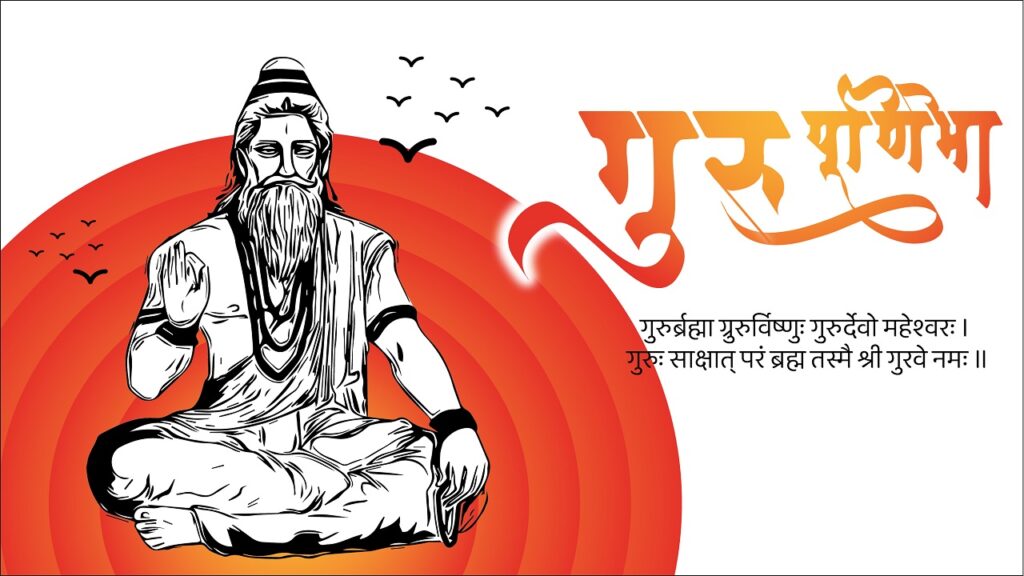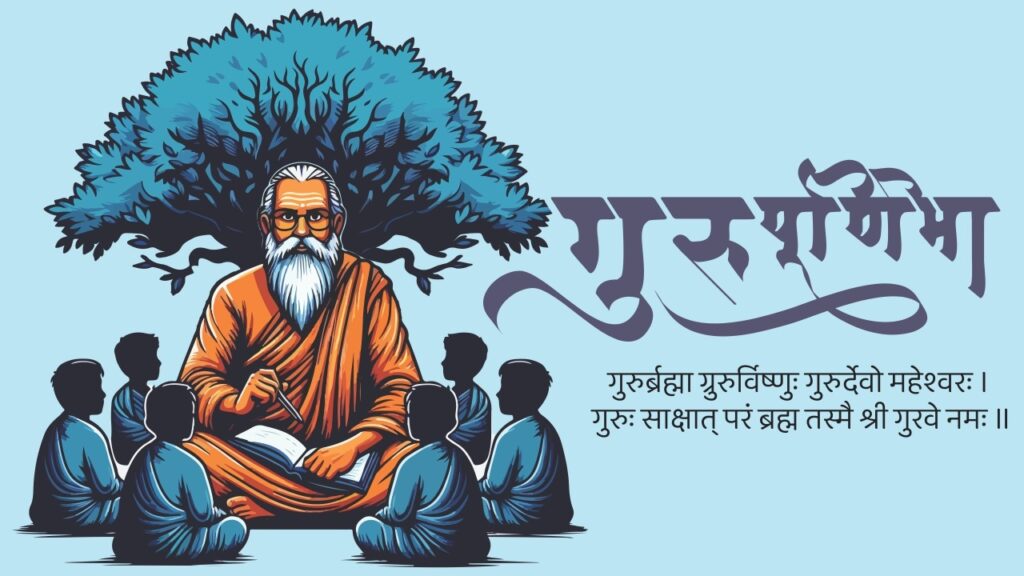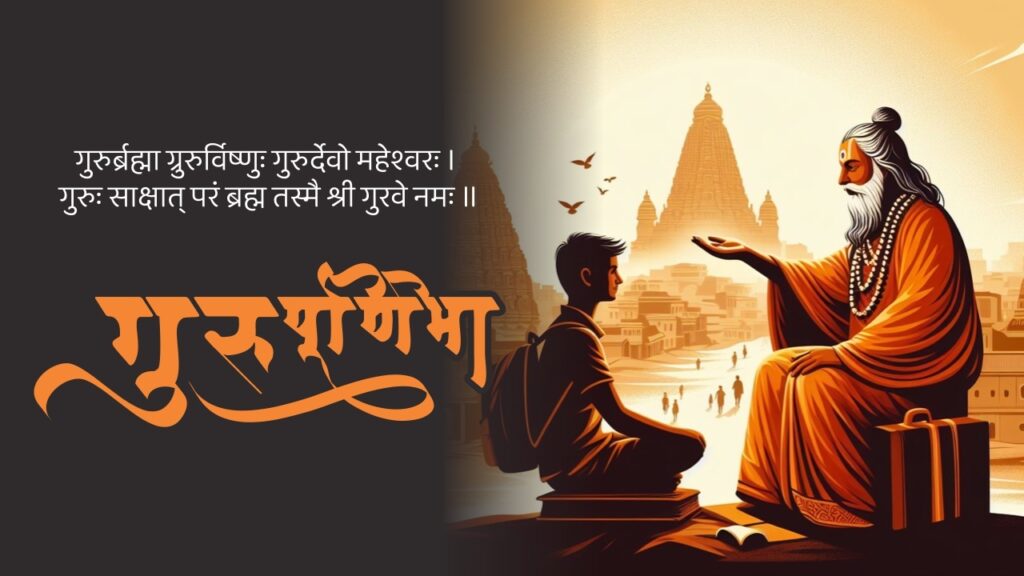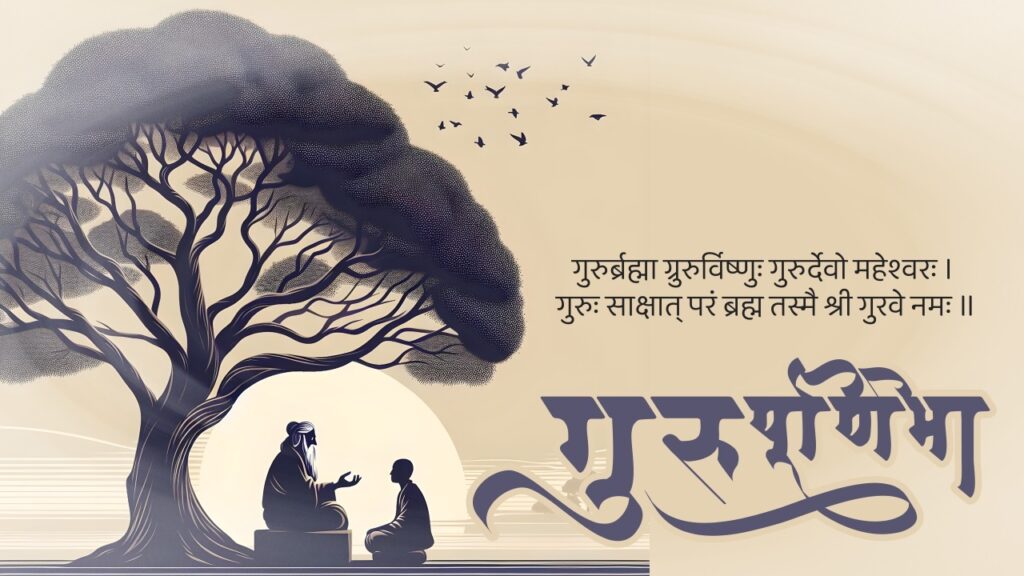In this transient world of today, occasions of long-lasting thanksgiving are precious. But every year, one festival is late, a religious one—Guru Purnima, a day beyond religion and calendar, giving us the opportunity to pay homage to the glowing forces that steer us. It is one celebration beyond ritual; it is spiritual rebirth, an obeisance to the ageless search for knowledge and gurus, who steer our life paths.
The Significance of Guru Purnima
Guru Purnima is a festival that is celebrated on the full moon day of Ashadha, which corresponds to June/July in the Hindu calendar. Its roots date back to the term “Guru,” a word that was derived from Sanskrit, meaning “Gu,” darkness, and “Ru,” remover. The Guru is thus the remover of darkness and the guide of the seeker to light and knowledge.

It is considered traditionally to be the birthday of the seer Ved Vyasa, who had also authored the Vedas and the Mahabharata. It’s also the day Lord Buddha preached his first sermon on how one can gain enlightenment, and thus the day is sacred to Buddhists as well.
Cultural and Spiritual Relevance
Guru Purnima is not just a religious celebration but also an international exhibition of gratitude for all kinds of guidance—moral, intellectual, spiritual, and even parental. Disciples once sat around their gurus to hear them out in the past, but the same emotions have now been given to teachers, coaches, life guides, and mentors as well.
Why Is It Celebrated?
- To honor spiritual heritage: From the masters of old to modern-day gurus.
- To stock up on gains: Time to take inventory of one’s journey and passage.
- To remember self-discipline: Most seekers of the spirit re-achieve routines on this day.
- To express thanks: Grateful obeisance to those who have blazed the trail.

Guru Purnima Across Traditions
| Tradition | Significance | Observances |
|---|---|---|
| Hinduism | Birthday of Ved Vyasa, the Adi Guru | Rituals, prayer, offering to gurus |
| Buddhism | Buddha’s first sermon at Sarnath | Meditation, Dhamma sermons, Sangha assembly |
| Jainism | Worship of spiritual gurus | Reflection, spiritual rejuvenation |
| Modern Education | Celebrating life and study guides | Felicitation, speeches, rewards |
Personal Musings: My First Guru Purnima
My first experience with Guru Purnima was not in an ashram or temple. It was inside a small class that my school teacher stayed back after office time to clarify for me a math question for which I had replied incorrectly three times previously. That tolerance, that belief in my abilities when I didn’t have any, proved longer-lasting than any classroom textbook lesson. On that day, I understood what a guru is—not an instructor but a transformer.
The Guru in Daily Life
We’d prefer to imagine gurus in saffron robes or preaching high-sounding sermons, yet actual gurus come in all forms in everyday life:
- A parent who instructs tenacity.
- A counseling buddy.
- A book that brings your mind together.
- A failure that redirects your search.
It is an exercise in awareness to recognize such moments. Guru Purnima teaches you to stop, observe, and thank.

How to Celebrate Guru Purnima Today
The technology connect of today allows words of thanks to go and reach and spread far and wide. This is how you can celebrate traditionally and in contemporary style:
Traditional Practices
- lenamea pray or do puja to your guru.
- Go to an ashram or spiritual community.
- Chant or meditate to feel the inner guide.
Modern Expressions
- Send a sincere letter or mail to your guru.
- Call and give thanks to a guide or teacher.
- Donate to religious or educational institutions.
- Start a diary to record your own development in the wisdom of your guru.
Guru Purnima vs. Teacher’s Day:
Honoring the Difference Although both days salute knowledge-givers, their nature is different:
| Aspect | Guru Purnima | Teacher’s Day |
| Origin | Spiritual, traditional Indian traditions | Dr. S. Radhakrishnan’s birthday |
| Focus | Inner transformation, spiritual development | Academic studies in schools |
| Observed by | Spiritual seekers of all religions | Students, teachers in India |
Quotes That Evoke the Spirit of Guru Purnima
“Guru is the maker, sustainer, and destroyer. Guru is the absolute. I bow down to Guru.”
“A good teacher points you in the direction but doesn’t tell you what to look at.”
“The guru doesn’t give you the truth. He helps you find it.”
Why Guru Purnima Still Matters
In this age that is even more algorithmic and AI-focused, no digital copy can beat the human touch of a guru. A good teacher not only sheds light on an illumination of knowledge but also ignites the flame of wisdom, empathy, and inner courage.
Guru Purnima is our annual reminder that education is sacred, and so are the teachers who enable us to achieve it. Wherever you might position yourself locating your teacher—in a monastery, in a podcast, in a poem, or in a parent—there is no variation of gratitude.
Conclusion:
Bowing to the Light Within Guru Purnima is not a day on the lunar calendar; it’s an ever-true appreciation for the individuals who illuminate darkness within us and guide us along the path of life. On this sacred day, do take a moment to honor gurus—in person or presence, past or present. The highest regard for a guru is not reverence alone; it’s to tread in the harmony of principles with integrity.




